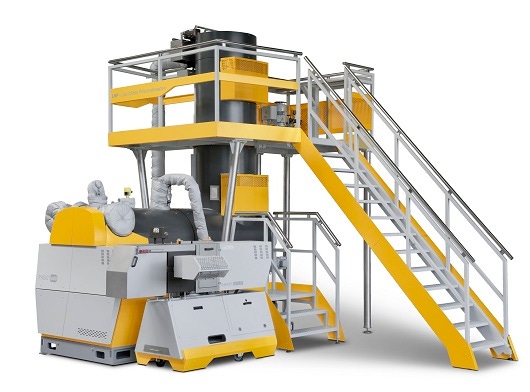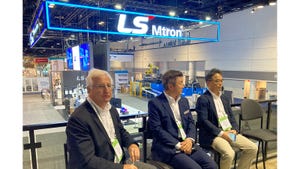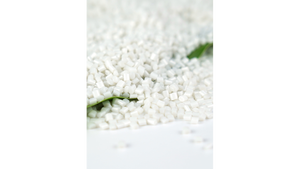Next-generation PET recycling machines and more
NPE2018 premieres, innovations and highlights from Next Generation Recycling Machines (Feldkirchen an der Donau, Austria) range from FDA-allowed 100% post-consumer rPET bottle flake to downgauging of sheet, mobile connectivity and more.
May 2, 2018

Plastics recycling machinery manufacturer Next Generation Recycling Machines (Feldkirchen, Austria) will showcase new processing methods, innovative technology and profit-generating services along the plastics value chain in West Hall, Booth W7263 at NPE2018.
These include the following P:REACT technologies:
The “Liquid State Polycondensation” reactor on display at the booth (shown) is the first time the revolutionary technology for PET-improvement will be shown at a trade show in the United States.
Purely Clean: The liquid phase of PET in the P:REACT allows harmful chemicals to be quickly removed while still offering an unmatched level of process stability. The FDA has given approval for 100% food contact to the Liquid State Polycondensation (LSP) recycling process used in the P:REACT process.
Lower Production Costs: In sheet manufacturing, the extraordinarily high process stability results in noticeably less process downtime, meaning higher production volume within the same time frame. Another advantage is that users achieve more consistent sheet thickness, saving a considerable amount of material. This process stability can allow the possibility of downgauging without loss of properties, resulting in raw material savings. Even in very sensitive fiber production processes, output has been taken to a new level due to quality improvements resulting from the increased process stability. In addition, the LSP-process is possible using 100% post-consumer rPET such as bottle-flakes—use of virgin material is unnecessary.
EastPack 2018 held June 12-14 at the Jacob K. Javits Convention Center in New York City features the latest in manufacturing and automation, a dedicated 3D Printing Zone, hundreds of exhibitors and a jam-packed 3-day packaging conference. For more information, visit the EastPack website. |
Reduced CO2-Footprint. In addition to pellet manufacturing, the P:REACT is increasingly being used for direct production of sheet, film and fiber, thus combining recycling and manufacturing into “One-Step.” By avoiding the additional energy and handling steps of a separate production process, extremely high efficiency can be achieved.
Increased Intrinsic Viscosity (IV) determined to a precise level. Process stability in combination with a special feedback loop allows users to control the exact output IV even with variations in input IV. High IV with high IV consistency creates the highest rPET value possible.
Also highlighted will be Multi-Inspect Inline Melt Qualification and Characterization as a smart way to meet quality demands in production by combining several critical measurements into one simple device. Viscosity, optical inspection, color, tensile, resin identification, contamination level, etc., are simultaneously measured on-line giving real-time results for the recycling process.
NGR Connect gives the user a live digital connection to their recycling process. All relevant operating parameters on the NGR system are recorded and made accessible user users via any portable device including tablet or smartphone. For example, NGR Connect monitors the decontamination performance In conjunction for P:REACT. Recipe management directly on the machine makes it possible to classify the raw PET input material and link to P:REACT production data. As a result, users achieve ideal process tracking and optimization to meet their goals.
In a related note, NGR announced that Green Line Polymers, Inc., one of the largest recyclers of polymer products in North America and an Advanced Drainage Systems, Inc. (Hilliard, OH) recycling subsidiary, has recently installed the largest NGR recycling machine ever built (shown). Capable of recycling well in excess of 4,000 lb per hour of plastics scrap materials in a variety of forms, this latest installation will recycle high volumes of post-industrial polyethylene scrap materials. This recycled product will then be a used for the next generation of ADS corrugated piping products and water management solutions (WMS).
Founded in 1966, ADS operates a global network of approximately 60 manufacturing plants and over 30 distribution centers. Today, more than 8.5 billion feet of ADS pipe is in service around the world from major construction sites with drainage requirements to residences.
About the Author(s)
You May Also Like


